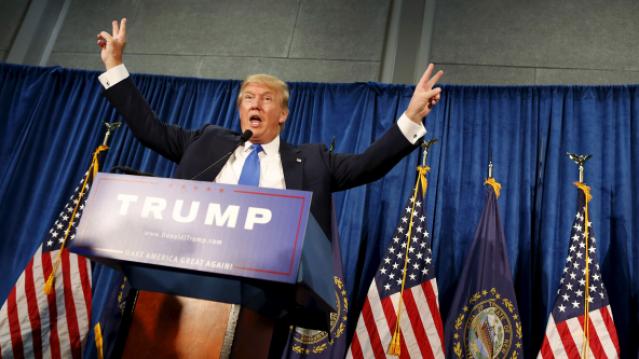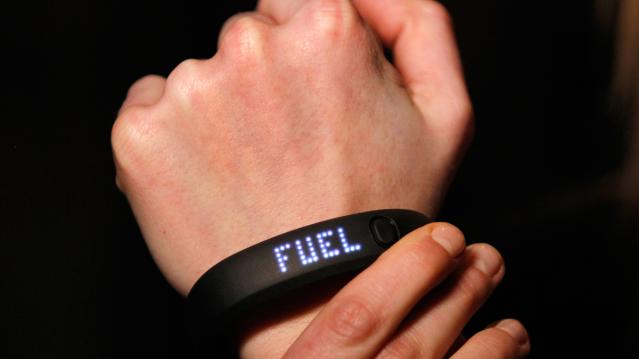How IBM Is Making Your Passwords Useless
For years, quantum computing has been hailed as a technology that could change the way the modern world works, but a long-standing technical issue has kept that potential from being realized. Now, in a paper published in the journal Nature last week, IBM scientists have taken a big step (see how I avoided the temptation to make a pun there?) toward solving that problem — and while it could represent progress toward making quatum computers real, it also could mean that current cybersecurity standards will soon be much easier to crack. In other words, your passwords could be obsolete soon.
The power of quantum computing has some obvious appeal: The increase in processing power could speed up research, especially in big data applications. Problems with large datasets, or those that need many millions (or billions, or more) of simulations to develop a working theory, would be able to be run at speeds unthinkable today. This could mean giant leaps forward in medical research, where enhanced simulations can be used to test cancer treatments or work on the development of new vaccines for ebola, HIV, malaria and the other diseases. High-level physics labs like CERN could use the extra power to increase our understanding of the way the universe at large works.
But the most immediate impact for the regular person would be in the way your private information is kept safe. Current encryption relies on massively large prime numbers to encode your sensitive information. Using combinations of large prime numbers means that anyone trying to crack such encryption needs to attempt to factor at least one of those numbers to get into encrypted data. When you buy something from, say, Amazon, the connection between your computer and Amazon is encrypted using that basic system (it's more complicated than that, but that's the rough summary). The time it would take a digital computer to calculate these factors is essentially past the heat death of the universe. (Still, this won't help you if your password is password, or monkey, or 123456. Please, people, use a password manager.)
Quantum computing, however, increases processing speed and the actual nature of the computation so significantly that it reduces that time to nearly nothing, making current encryption much less secure.
The IBM researcher that could make that happen is complicated, and it requires some background explanation. For starters, while a "traditional" computing bit can be either a 0 or a 1, a quantum computing bit can have three (or infinite, depending on how you want to interpret the concept) states. More specifically, a qubit can be 0, 1, or both.
 Up until now, the both part of that caused some problems in realizing the power of quantum computing.
Up until now, the both part of that caused some problems in realizing the power of quantum computing.
Apparently — and you'll have to take this on faith a bit, as it hurts my head to think about it — the both state can switch back to either 0 or 1 at any given point, and sometimes incorrectly, based on the logic in the programming. Think about when your phone freezes up for a second or two while you're matching tiles. This is its processor handling vast amounts of information and filtering out the operations that fail for any number of reasons, from buggy code to malware to basic electrical noise. When there are only the two binary states, this is a process that usually happens behind the scenes and quickly.
The hold-up with quantum computing up until now is that the vastly greater potential for errors has stymied attempts to identify and nullify them. One additional wrinkle in this reading quantum states is familiar to anyone with basic science fiction knowledge, or perhaps just the ailurophobics. What if the action of reading the qubit actually causes it to collapse to 0 or 1?
The very smart people at IBM think they've solved this. The actual technical explanation is involved, and well beyond my ability to fully follow, but the gist is that instead of just having the qubits arrayed in a lattice on their own, they are arranged such that neighbors essentially check each other, producing the ability to check the common read problems.
That opens the door to further quantum computing developments, including ones that will make your password a thing of the past. So, does this mean that you need to start hoarding gold? No, not yet. And hopefully before quantum computing reaches commercial, or even simply industrial/governmental levels, a better cyber security method will be in place. Or the robots will have already taken over. I for one welcome them.
DOJ Indicts Democratic Lawmaker for Corruption
Martin Matishak, The Fiscal Times
The Justice Department has indicted Rep. Chaka Fattah (D-PA) on almost 30 federal counts of political corruption.
The 11-term congressman and four associates were indicted on 29 federal charges, including bribery, money laundering, falsification of records, and multiple counts of bank and mail fraud, the department announced Wednesday.
Related: Billions in Unfinished Business as Congress Heads Out for Vacation
The charges against Fattah and his associates stem from his failed run for Philadelphia mayor in 2007.
Fattah and the others "embarked on a wide-ranging conspiracy involving bribery, concealment of unlawful campaign contributions and theft of charitable and federal funds to advance their own personal interests,” according to Assistant Attorney General Leslie R. Caldwell.
Justice alleges that Fattah borrowed $1 million from a wealthy donor during his mayoral bid and that he returned $400,000 in unused funds and developed a scheme to repay the remaining $600,000 by tapping charitable and federal grants through a local non-profit the Pennsylvania lawmaker created.
Federal officials also allege that the Fattah sough to repay supporters by offering federal grants and used funds from both his mayoral and congressional campaigns to pay down his son's student loan debts of around $23,000.
"Public corruption takes a particularly heavy toll on our democracy because it undermines people’s basic belief that our elected leaders are committed to serving the public interest, not to lining their own pockets,” she said in a statement.
House Minority Leader Nancy Pelosi (D-CA) said that Fattah has stepped down as the top Democrat on the House Appropriations Commerce, Justice, Science and Related Agencies subcommittee.
Here’s Why Americans Are Keeping Their Cars Longer than Ever

As cars get more reliable Americans are holding onto their vehicles for longer than ever before. The average age of cars and light trucks is now 11.5 years old, according to a new report from IHS Automotive.
In addition to better reliability, cars are getting older because Americans bought far fewer new cars in the years following the Great Recession, as concerns lingered about unemployment and the strength of the economy.
Even as consumers have started purchasing new vehicles again, they’re still holding onto their older ones. The average length of ownership of a new vehicle reached 6.5 years in the first quarter of 2015, more than two years longer than in 2006. The number of cars more than 12 years old continues to grow and is expected to increase 15 percent by 2020.
Related: The Incredible Disappearing American-Made Car
IHS predicts that the average age of vehicles will inch up slightly over the next few years, hitting 11.7 years in 2018.
The number of cars on the road hit a record 258 million, posting a 2.1 percent increase over last year, driven by the purchase of new cars. IHS expects that volume of cars less than 5 years old will increase by 24 percent over the next five years.
Consumer sales of autos were on pace to rise 4.2 percent this month, according to TrueCar, compared to July of 2014, thanks to increased demand, summer sales events and the growing popularity of premium brands.
Top Reads from The Fiscal Times:
- Why Hillary Clinton’s Tax Plan to Soak Investors Won’t Work
- US Health Spending: $3.1 Trillion a Year and Growing
- Joe Biden: The Looming Threat to a Republican Presidency
The Most Expensive Cities for Singles -- and the Cheapest

Looking for love in all the pricey places? Check out these lists of the most and least expensive cities for singles before you go on that next date or plan your next move. Looking good doesn’t come cheap, and the price of a decent wardrobe and a gym membership add ups before you even step out the door.
To determine which cities were the least and most affordable for singles, GoBankingRates examined 89 cities and rated them according to four expense categories -- clothing, dates, gym memberships and rent -- using data from Numbeo.com. “Singles are more likely to exercise, and to have a gym membership,” says Elyssa Kirkham, a finance writer for GoBankingRates. “They’re more likely to rent than own a home, and spend more money on dates and clothing.”
Related: Hot New Dating Criteria: What’s Your Credit Score?
San Francisco is the most expensive city for singles, especially when it comes to rent. Rent is 30 percent more expensive in San Francisco than it is in Honolulu. The cost of a date here is $147, compared with the median cost of $109. California just might be the most expensive state to date in, claiming seven of the top 15 spots: San Francisco, Fremont, Glendale, Irvine, Los Angeles, San Diego and Oakland.
The second most expensive city? New York City, which boasts the most expensive gym membership at $90 per month. Clothing costs here are the second-highest in the nation -- bad news for all the Carrie Bradshaws out there. And date night will set you back $145.
The most expensive date night in the country is in Washington, D.C., which came in third overall. Date night in our nation’s capital costs $166 for dinner, a bottle of wine, two movie tickets and a 10-mile taxi ride. Compare that to Chattanooga, Tennessee, which had the cheapest date night at $78.
Looking for more bang for your buck? Move to Reno, Nevada. Rent here is just 86 cents per square foot, and a night out averages $97.30. Keep in mind, though, that “the Biggest Little City in the World” was once known as the divorce capital of the world, so dating there may offer less promise than other locales.
Related: The Bad News About All the Singles in America
Most Expensive Cities for Singles
- San Francisco
- New York
- Washington, D.C.
- Honolulu
- Boston
- Fremont, California
- Glendale, California
- Anchorage, Alaska
- Miami
- Seattle
- Irvine, California
- Los Angeles
- San Diego
- Oakland, California
- Madison, Wisconsin
Related: Marriage?? Young Americans Aren’t Even Shacking Up
15 Cheapest Cities for Singles
- Reno, Nevada
- Tucson, Arizona
- Grand Rapids, Michigan
- Tacoma, Washington
- Indianapolis
- Mesa, Arizona
- Little Rock, Arkansas
- Albuquerque, New Mexico
- Huntsville, Alabama
- Memphis, Tennessee
- St. Louis, Missouri
- Jackson, Mississippi
- Stockton, California
- Omaha, Nebraska
- Chattanooga, Tennessee
Donald Trump Isn’t as Rich as He Says…but He’s Still Pretty Rich

“I’m really rich,” Donald Trump boasted last month when he announced he was running for president. A new analysis by Bloomberg confirms that claim, but finds that the real estate mogul and presidential candidate is worth about $7 billion less than he claims.
When he announced his presidential bid, Trump touted a net worth of about $8.7 billion, a figure that soon ballooned to $10 billion. But Bloomberg calculates his wealth closer to around $2.9 billion. The Bloomberg Billionaires Index, a daily ranking of the world’s biggest fortunes, arrived at the value using both prior-known information and a 92-page personal disclosure form that Trump filed with the Federal Election Commission.
Related: 7 Revelations from Donald Trump’s Financial Disclosure
The federal form that all presidential candidates are required to submit asks only for broad ranges in asset values, not specific sums. Anything above $50 million in value is lumped together in one category, which in Trump’s case left plenty of room for questions about just how valuable some of his assets are. The federal report also doesn’t require candidates to list personal property like art, clothing or real estate that’s for his own use.
The Bloomberg analysis went into much more depth, using figures such as purchase dates, square footage, rental rates and more.
The disclosure form revealed that most of Trump’s fortune comes from real estate holdings, such as the Trump Doral resorts in Florida and Trump Tower on Fifth Avenue in New York City. Other lucrative properties include premier golf courses in the U.S., Ireland and Scotland.
Related: Donald Trump Just Showed Why His Campaign Is Doomed
Trump had valued his golf and resort properties at $2 billion. Bloomberg, using price-to-sales ratios for similar properties, put the value at a combined $570 million.
The Bloomberg methodology also doesn’t put much value in the Trump brand, counting only the cash being held as part of licensing or other business deals. “Trump’s own estimations,” Bloomberg noted, “include much higher values for his brand.”
Top Reads from The Fiscal Times:
- Huckabee Trounces Trump in the Shameless Shock Game
- You’re Richer Than You Think. Really.
- 15 Facts You Didn’t Know About Donald Trump
In a Black Eye for Wearable Tech, Nike Giving Refunds for FuelBand

If you thought that the calorie count and steps tracked by your Nike FuelBand were inaccurate, you may have been right.
Nike and Apple have agreed to settle a class action lawsuit claiming that the companies made misleading statements regarding the product’s ability to accurately track calories and steps, according to a website maintained by settlement administrator Gilardi & Co.
The companies have denied the allegations and claim they broke no laws, but they have agreed to a settlement in which Nike will give consumers who join the class action suit by January $15 or a $25 Nike gift card. The total cost of the refunds could reach more than $2 million.
Related: Why No One is Actually Buying Wearable Tech
Anyone who purchased a FuelBand from January 19, 2012 through June 17, 2015 is eligible for the refund.
Last year, Nike began shifting its focus away from producing FuelBands, choosing instead to focus on apps, including one for the Apple watch, that support fitness tracking. The company has said it has more than 60 million digital fitness software users.
The FuelBand was an early entrant into what has become a crowded field or wearable fitness trackers, despite questions about their accuracy. However smart watches, which offer built-in fitness trackers along with other apps, may soon eclipse the demand for that standalone products.
A report released last year by tech analysts Juniper Research projected that revenue from wearable tech, would increase from $4.5 billion in 2014 to more than $53 billion in 2019.
